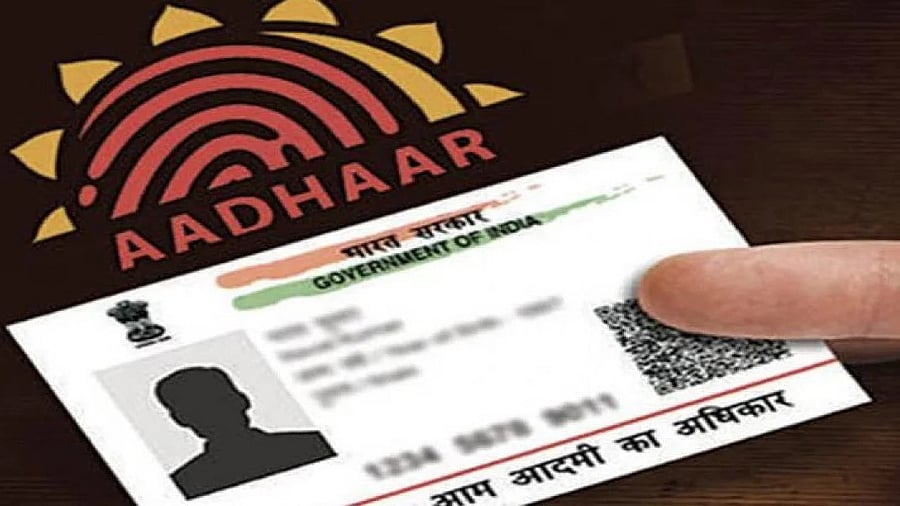
Credit: DH Photo
The Supreme Court on Monday instructed the Election Commission (EC) to accept Aadhaar as the 12th valid document for identity verification in the Special Intensive Revision (SIR) of electoral rolls in poll-bound Bihar.
Currently, Bihar’s SIR process allows voters to submit 11 types of identity proofs along with their enumeration forms. The bench of Justices Surya Kant and Joymala Bagchi emphasized that Aadhaar can serve as proof of identity, but not as proof of citizenship.
It instructed the EC to issue guidelines on this matter by September 9, 2025.
The government of India has now listed out a list of 12 documents for voters during the Special Intensive Revision (SIR) of electoral rolls of Bihar, which are as follows.
Valid Indian Passport
Representative image of an Indian passport.
Credit: DH Photo
A valid Indian passport serves as a strong proof of identity and citizenship. It is widely accepted for official and travel-related purposes across India and abroad.
Birth Certificate
Representative image showing birth certificate.
Credit: iStock Photo
A birth certificate is an official document issued by the government as proof of date and place of birth. It is commonly used for identity verification and establishing citizenship in India.
NRC Document (if applicable)
An official checks the documents submitted by people at a National Register of Citizens (NRC).
Credit- PTI Photo
An NRC (National Register of Citizens) document is an official record that verifies a person's citizenship status in India. It is used as proof of citizenship and identity, particularly in regions where the NRC process is implemented to identify legitimate citizens.
Permanent Residence Certificate
Representative image of an Indian national flag.
Credit: iStock Photo
A Permanent Residence Certificate (PRC) is an official document that certifies a person's long-term residence in a particular state or region of India. It is used as proof of identity and eligibility for various government services and benefits.
Caste certificate (OBC/ST/SC)
Credit- iStock Photo
A Caste Certificate is issued by the government to certify a person's caste status. It is used as proof of identity and eligibility for various reservations and benefits under government schemes.
Higher Education Certificate
Representative image of educational certificates.
DH Photo
A Higher Education Certificate is awarded by a recognized educational institution after completing a degree. It serves as proof of academic qualification and identity for employment, further studies, and other official purposes.
Pension Order
Representative image of money.
Credit: Reuters Photo
A pension order issued by the government or authorized agency confirms a person's entitlement to a pension. It serves as proof of identity and eligibility for receiving regular pension benefits.
Land Allotment Certificate
Representative image of land.
Credit: iStock Photo
A land allotment or house allotment certificate issued by a government body confirms the allocation of land to an individual. It serves as proof of identity verification and property-related transactions.
PSU Identity
Representative image showing PSU banks.
Credit- iStock Photo
A PSU identity or government documents that are dated prior to 1987, issued by a Public Sector Undertaking in India. It serves as proof of employment and identity for employees working in government-owned companies and is accepted for official and verification purposes.
Family Register
Representative image of Ministry of Health and Family Welfare.
A family register that has been issued by a local body records details of all family members, including their names, relationships, ages, and other personal information. It is used as proof of identity, residence, and family relationships for government services and legal purposes.
Forest Rights Certificate
Representative image of certificate.
Credit: iStock Photo
A Forest Rights Certificates is an official document issued under the Forest Rights Act, recognizing the rights of forest-dwelling communities over land and resources. It serves as proof of identity, residence, and entitlement to use and manage forest land and resources legally.
Aadhar
Aadhar scheme.
Credit- DH Photo
Aadhar is a 12-digit unique identification number issued by the government of India to residents based on their biometric and demographic data.
The court clarified that the EC must verify the authenticity of Aadhaar numbers submitted by voters and ensure that only legitimate citizens are included in the voter list, while preventing the inclusion of forged or fake entries.
“Nobody wants the EC to include illegal immigrants in the electoral rolls. Only genuine citizens should vote,” the bench noted, instructing the EC to issue the necessary orders on Aadhar’s inclusion by the end of the day.
Additionally, the Supreme Court sought an explanation from the EC regarding show-cause notices issued to officials who refused to accept Aadhaar as a valid identity proof.
Referring to the Aadhar Act, 2016, and the Representation of the People Act, the court reiterated that Aadhar is valid only for identity verification and does not confirm citizenship.
Senior advocate Rakesh Dwivedi, representing the EC, argued that no practical purpose, as 99.6% of the 7.24 crore voters had already submitted other valid documents in the draft list.
“So it is not the case that these 11 documents are not there. None of the political parties or petitioners has been able to point out that a large number of people have been excluded,” he added.
Earlier, on September 1, the EC informed the court that claims, objections, and corrections to the draft electoral rolls published on August 1 could still be filed beyond the deadline but would be processed after the final roll is published.
The SC pointed out that confusion surrounding Bihar’s SIR is largely a trust issue, and directed the state legal services authority to deploy paralegal volunteers to assist voters in filing claims and objections.
As per the EC schedule, the final voter list is to be published by September 30, after receiving over 22,000 inclusion claims and over 1.34 lakh objections between August 22 and 30.
